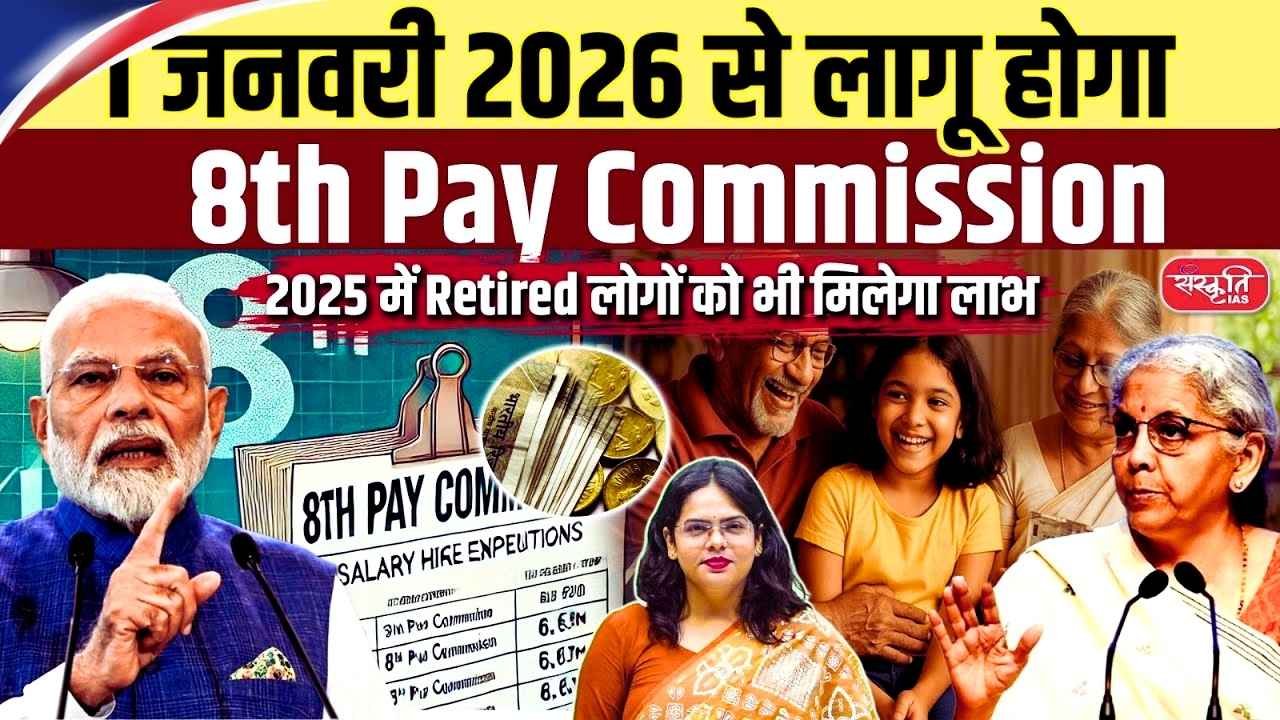The Modi government has set the stage for a major salary boost for central government employees and pensioners with the 8th Pay Commission, announced on January 16, 2025. Expected to roll out from January 2026, this move will affect over 50 lakh workers and 65 lakh pensioners. It aims to tackle rising living costs and give a financial lift to millions. While the exact details are still being worked out, the buzz is all about higher salaries, better pensions, and updated allowances. Here’s a simple breakdown of what’s coming and how it could change things for government staff.
Why the 8th Pay Commission Matters
Every 10 years, the government sets up a Pay Commission to review and update salaries, pensions, and benefits for its employees. The last one, the 7th Pay Commission, started in 2016 and raised the minimum basic salary from Rs 7,000 to Rs 18,000. Now, with prices of essentials like food and fuel climbing, workers say their pay isn’t keeping up. The 8th Pay Commission is expected to bring a salary hike of 20% to 34%, depending on job levels, to help employees cope with inflation. Pensioners will also see their monthly payments rise, offering better support in retirement.
What’s the Fitment Factor?
A key part of the Pay Commission is the fitment factor, a number used to calculate your new salary by multiplying it with your current basic pay. The 7th Pay Commission used a fitment factor of 2.57, and experts guess the 8th could range between 1.83 and 2.86. For example, if your basic pay is Rs 40,000 and the fitment factor is 2.5, your new basic pay could be Rs 1,00,000. Higher fitment factors mean bigger hikes, but the final number will depend on government decisions and budget limits.
| Current Basic Pay | Fitment Factor | New Basic Pay (Estimated) |
|---|---|---|
| Rs 18,000 | 2.86 | Rs 51,480 |
| Rs 40,000 | 2.5 | Rs 1,00,000 |
Changes to Allowances and Pensions
The 8th Pay Commission will also tweak allowances like Dearness Allowance (DA), House Rent Allowance (HRA), and Transport Allowance (TA). DA, which helps offset inflation, is at 55% now and might hit 70% by 2026 before merging into the new basic pay. Pensioners could see their minimum pension jump from Rs 9,000 to around Rs 20,500 to Rs 25,740, based on the fitment factor. These changes aim to make life easier for both workers and retirees, but they’ll also put pressure on the government’s budget, possibly costing Rs 1.5 to 2.5 lakh crore yearly.
When Will It Happen?
Though announced in January 2025, the 8th Pay Commission’s full rollout might take time. The government is still finalizing the Terms of Reference (ToR) and picking members for the commission. This process could stretch 18 to 24 months, meaning actual changes might not start until late 2026 or even 2028. But don’t worry, any salary or pension hikes will apply from January 2026, with arrears paid later. Employee unions are pushing for faster action, citing delays and rising costs.
What to Expect Next
This pay hike is a big deal for millions of families, promising better financial security and more spending power. However, some worry it could strain government funds, possibly leading to higher taxes or cuts in other areas like education or healthcare. For now, employees and pensioners should keep an eye on official updates from the Ministry of Finance or trusted sources like PIB. If you’re a central government worker, start planning how this boost could help with savings or expenses. The 8th Pay Commission could be a game-changer, but patience is key as details unfold.
